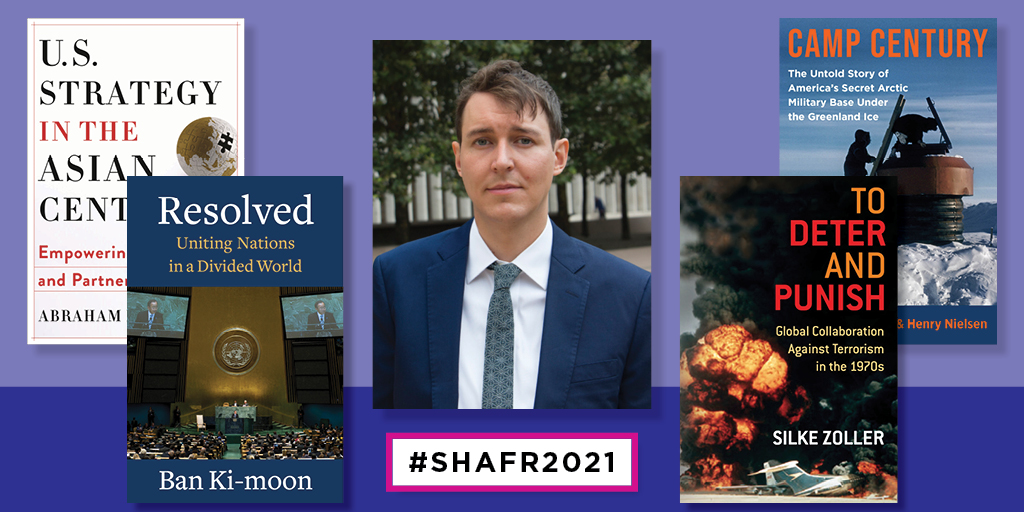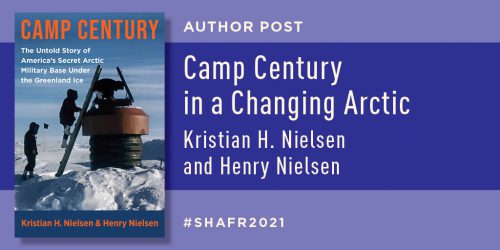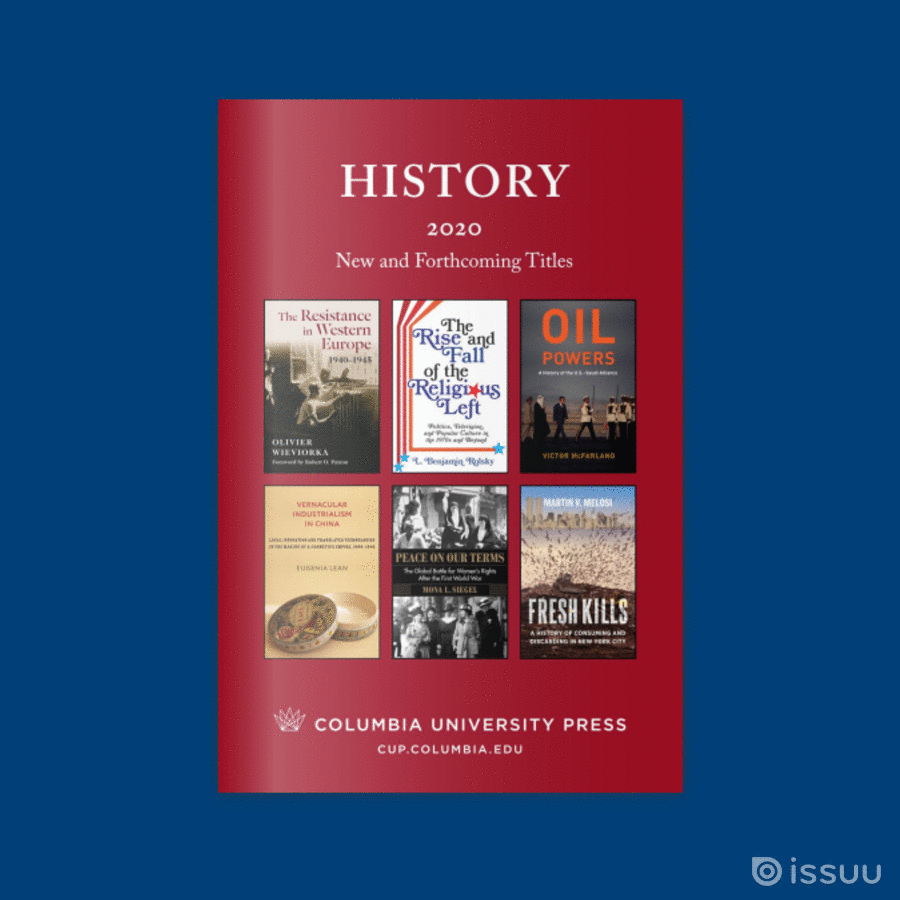Browse Our SHAFR 2021 Virtual Exhibit Booth with Stephen Wesley

Hello there,
I’m Stephen Wesley, the American history editor at Columbia University Press. Since the coronavirus pandemic has canceled most of the spring conferences—the Society for Historians of American Foreign Relations annual program included—we are mounting virtual book exhibits on our blog.
I am delighted to present our newest titles in the history of American foreign relations and adjacent fields. The titles featured here demonstrate the vibrancy of Columbia University Press’s program as we continue a long tradition of publishing top scholarship in the field.
In the history of foreign relations and security studies, we have To Deter and Punish: Global Collaboration Against Terrorism in the 1970s. In it, the historian Silke Zoller examines why and how the United States and its Western European allies came to treat nonstate “terrorists” as a key threat to their security and interests.
We also recently published Camp Century: The Untold Story of America’s Secret Arctic Military Base Under the Greenland Ice. In it, Kristian H. Nielsen and Henry Nielsen offer the first comprehensive account of the U.S. Army’s “city under the ice,” the would-be nuclear base built during the Cold War that would be the cause of diplomatic tensions between the United States and its Arctic allies, Denmark and Greenland.
Looking to the years ahead, we have U.S. Strategy in the Asian Century from Abraham M. Denmark, the director of the Asia Program at the Wilson Center. This book offers vital perspective on the future of power dynamics in the Indo-Pacific, focusing on the critical roles that American allies and partners can play.
And, finally, we are proud to have just published the memoir of Ban Ki-moon, former secretary-general of the United Nations. Resolved is Ban Ki-moon’s personal account of his decade at the helm of the organization during a period of historic turmoil and promise. Meeting challenges and resistance with a belief in the UN’s mission of peace, development, and human rights, he steered the United Nations through a volatile period that included the Arab Spring, nuclear pursuits in Iran and North Korea, the Ebola epidemic, and brutal new conflicts in Central Africa. As secretary-general, Ban also forged global agreements to fight extreme poverty and address the climate crisis.
For the duration of what would have been the conference weekend, you can use the code SHAFR at checkout from our website for a 20 percent discount on any of our conference titles.
Categories:American HistoryBook ExcerptHistoryInternational RelationsPoliticsSociety for Historians of American Foreign RelationsVirtual Exhibits
Tags:Abraham M. DenmarkBan Ki-moonCamp CenturyHenry NielsenKristian H. NielsenResolvedSHAFR2021Silke ZollerStephen WesleyTo Deter and PunishU.S. Strategy in the Asian Century
Related Posts
-

-
 American History / Asian Politics / Asian Studies / Association for Asian Studies / Book Excerpt / History / International Relations / Society for Historians of American Foreign Relations / Virtual Exhibits
American History / Asian Politics / Asian Studies / Association for Asian Studies / Book Excerpt / History / International Relations / Society for Historians of American Foreign Relations / Virtual ExhibitsChallenged Friendships in Challenging Times
From the Introduction to U.S. Strategy in the Asian Century
By Abraham Denmark
-

-

-

-

-

-

